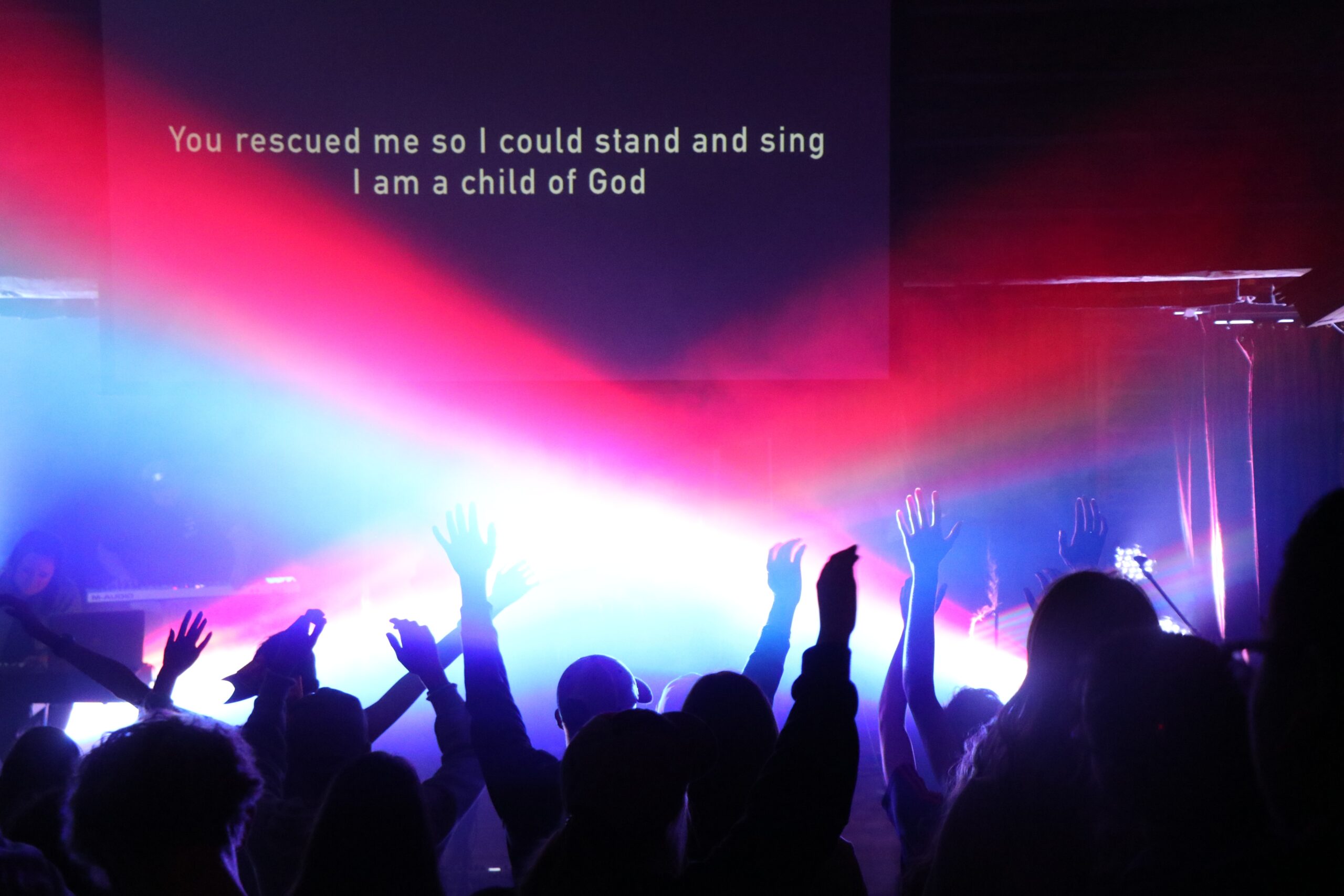In this article, you will discover the fascinating journey of how worship songs are created directly from Bible verses. Drawing inspiration from powerful scriptures such as Psalm 119:105, Colossians 3:16, and Isaiah 55:11, these transformative melodies take shape and become a means of conveying deep spiritual messages. As we explore the process of crafting worship songs from biblical texts, we will witness the profound way in which music can bring the words of the Bible to life, touching hearts and souls in a truly remarkable manner. Get ready to embark on a musical journey that celebrates the intersection of faith and music.

1. Understanding the Role of Worship Songs
Worship songs hold a significant place in religious practices, serving as a medium through which individuals connect with and express their devotion to God. These songs have the power to create a profound spiritual experience and foster a sense of unity and reverence among worshippers. Music, with its ability to evoke emotions and transcend language barriers, plays a vital role in connecting individuals with the divine.
1.1 Importance of worship songs in religious practices
Worship songs are an integral part of religious practices as they facilitate an atmosphere of reverence and worship. These songs help to set the tone for spiritual gatherings, reinforcing the sacred nature of the space and encouraging individuals to focus their hearts and minds on God. Worship songs have the ability to engage people on a deep emotional level, allowing them to express their love, gratitude, and surrender to the divine.
1.2 The power of music in connecting with God
Music has a unique ability to touch the depths of the human soul and elicit a response that transcends the realm of logic and reason. It has a way of bypassing the intellect and reaching the deepest part of our being, where we connect with the divine. Through worship songs, we can express our deepest longings, joys, and sorrows to God, allowing our spirits to soar in the presence of the Almighty.
1.3 Scriptural basis for incorporating music in worship
The incorporation of music in worship can be traced back to biblical times. The Bible is replete with references to singing, praising, and making music to honor God. One such example is found in Psalm 150:3-5, which says, “Praise him with sounding cymbals; praise him with loud clashing cymbals! Let everything that has breath praise the LORD! Praise the LORD!” These verses highlight the importance of music as a means of glorifying God and expressing our adoration for Him.
2. Exploring the Bible Verses
Certain Bible verses explicitly emphasize the role of music in worship and provide a foundation for the creation of worship songs. Let us delve into three such verses:
2.1 Psalm 119:105 – ‘Your word is a lamp for my feet, a light on my path
This powerful verse from Psalm 119 highlights the significance of God’s Word in guiding and illuminating our lives. By transforming this verse into a worship song, we can further internalize its message and allow it to resonate in our hearts. Such a song serves as a reminder of God’s guidance and inspires us to seek His wisdom in our daily walk with Him.
2.2 Colossians 3:16 – ‘Let the message of Christ dwell among you richly as you teach and admonish one another with all wisdom through psalms, hymns, and songs from the Spirit, singing to God with gratitude in your hearts’
In this verse, the apostle Paul encourages believers to let the message of Christ dwell richly within them. He emphasizes the importance of singing psalms, hymns, and spiritual songs as a means of teaching, admonishing, and expressing heartfelt gratitude to God. Worship songs that originate from this verse encourage believers to immerse themselves in God’s Word and use music as a tool to express their love for Him.
2.3 Isaiah 55:11 – ‘So is my word that goes out from my mouth: It will not return to me empty, but will accomplish what I desire and achieve the purpose for which I sent it
Isaiah 55:11 affirms the power and effectiveness of God’s Word. When transformed into a worship song, this verse serves as a proclamation of God’s faithfulness and the assurance that His Word will always accomplish its intended purpose. Such a song reminds worshippers of the unfailing nature of God’s promises and encourages them to place their trust in His Word.
3. The Process of Transforming Text into Tune
Creating a worship song that captures the essence of a Bible verse requires a thoughtful and intentional process. Let us break down the various steps involved in transforming text into tune:
3.1 Selection of the Bible verse
The journey of creating a worship song begins with the careful selection of a Bible verse that encapsulates a particular theme or message. This verse serves as the foundation upon which the entire song will be built.
3.2 Understanding the context and message
Before embarking on the creative process, it is essential to delve deeper into the chosen verse’s context and message. This understanding allows the songwriter to craft lyrics and melodies that align harmoniously with the intended meaning of the Scripture.
3.3 Identifying the thematic elements
Once the message of the verse is understood, it is crucial to identify the thematic elements within it. These elements serve as the building blocks for the lyrics and melodies of the song, ensuring a cohesive and impactful musical expression.
3.4 Crafting lyrics to align with the verse
The songwriting process involves carefully crafting lyrics that resonate with the chosen verse. The lyrics should convey the intended message and evoke a sense of spiritual connection and reflection in the listeners. It is important to strike a balance between poetic expression and clarity to make the lyrics singable and memorable.
3.5 Composing melodies to evoke emotions
Melodies play a pivotal role in conveying the emotions and sentiments inherent in the chosen verse. The songwriter must compose melodies that not only complement the lyrics but also create an atmosphere that touches the hearts of worshippers.
3.6 Adding harmonies and musical arrangement
To enhance the musical composition, harmonies are added to complement the melody. Harmonies serve to enrich the overall sound of the song and create a sense of depth and complexity. Additionally, the musical arrangement is crafted with careful consideration of instrumentation, dynamics, and song structure.
3.7 Incorporating rhythm and tempo
The rhythm and tempo of a worship song greatly influence its energy and feel. By selecting suitable rhythmic patterns and determining the ideal tempo, the songwriter can create a musical backdrop that supports the lyrical content and encourages congregational participation.
3.8 Ensuring the lyrics are singable and memorable
A crucial aspect of worship songs is their accessibility and memorability. The lyrics should be easy to sing and remember, allowing congregations to actively engage and participate in worship. Simple and repetitive phrases or refrains often facilitate this, enabling worshippers to focus on the message and connect with God through singing.
3.9 Seeking divine inspiration throughout the process
Throughout the songwriting process, it is essential to seek divine inspiration and guidance. Praying for God’s wisdom and inspiration helps to ensure that the resulting song effectively communicates His message and stirs the hearts of those who hear it.
3.10 Refining and revising the song for congregational use
Once the initial draft of the worship song is created, it is essential to refine and revise it with a congregational perspective in mind. This involves evaluating the song’s singability, musical arrangement, and overall impact on worship experiences. Feedback from worshippers and fellow musicians can also assist in fine-tuning the song before its incorporation into congregational worship.
4. The Intersection of Music and Scripture
The marriage of music and scripture holds profound significance within the realm of worship. When these two elements converge, an extraordinary opportunity arises to amplify the impact of the message and foster a deeper connection with God and fellow believers.
4.1 The unique ability of music to amplify the message
Music possesses a transformative power that can amplify the message conveyed through scripture. Whether it be through stirring melodies, harmonies, or dynamic arrangements, music helps to convey emotions and evoke responses that may be difficult to express through words alone. The marriage of music and scripture allows for a holistic worship experience that engages both the mind and the heart.
4.2 Music as an avenue for personal connection with God
Individuals often find themselves drawn closer to God through music. The combination of scriptural truths and melodic expressions enables an intimate connection with the divine. Through worship songs, believers can express their deepest longings, pour out their hearts before the Creator, and find solace and comfort in His loving presence.
4.3 Strengthening the impact of verses through melodies
Melodies have a way of embedding themselves into our consciousness, making them an ideal vehicle for reinforcing the impact of scripture. By crafting melodies that resonate with the emotions and essence of a verse, songwriters can etch the message into the hearts and minds of worshippers, allowing the transformative power of scripture to linger long after the song has ended.
4.4 Building a community of worshippers through shared songs
Shared worship songs build a sense of unity and community among believers. When a congregation comes together to sing songs rooted in scripture, a powerful bond is forged as they collectively express their devotion and adoration for God. This shared experience creates an atmosphere of worship and fosters a deeper sense of communion with fellow believers.
4.5 Encouraging reflection and meditation on God’s word
The combination of music and scripture encourages believers to reflect and meditate on God’s Word. As worship songs emanate from the verses, individuals are prompted to contemplate the depth, beauty, and relevance of the scriptures being sung. This reflection cultivates spiritual growth, deepens understanding, and allows for personal encounters with God.

5. Benefits of Worship Songs Derived from Bible Verses
Worship songs that find their origin in Bible verses offer a host of benefits to individuals and congregations alike. Let us explore some of these benefits:
5.1 Enhancing the understanding and memorization of Scripture
Worship songs provide a unique and powerful means of internalizing Scripture. The combination of music and lyrics enables individuals to engage with the Word of God on a more emotional and experiential level. As they repeatedly sing the verses, they are more likely to remember and apply them in their daily lives.
5.2 Facilitating spiritual growth and transformation
The immersive experience of singing worship songs derived from Bible verses enhances spiritual growth and transformation. As individuals meditate on the lyrics and melodies, they are led into a deeper understanding of God’s truth, an increased awareness of His presence, and a heightened desire to live according to His Word.
5.3 Fostering a deeper sense of worship and reverence
Worship songs derived from Bible verses foster a deeper sense of worship and reverence in the hearts of believers. These songs serve as expressions of adoration, awe, and gratitude towards God, drawing individuals into a heightened awareness of His majesty and greatness.
5.4 Creating a meaningful and immersive worship experience
By incorporating worship songs rooted in Bible verses, congregations experience a more meaningful and immersive worship experience. As believers join their voices in singing these songs, they enter into a collective act of worship, united in their love for God and their desire to honor Him.
5.5 Promoting unity and harmony among believers
Worship songs derived from Bible verses promote unity and harmony among believers. These songs transcend denominational and cultural boundaries, reminding worshippers of their shared faith and purpose. They encourage believers to set aside differences and focus on the truths that unite them in Christ.
6. Examples of Worship Songs Originating from Bible Verses
Several well-known worship songs are directly inspired by specific Bible verses. Let us explore some examples:
6.1 ‘Thy Word’ – Inspired by Psalm 119:105
The song “Thy Word” is a classic worship song inspired by Psalm 119:105. The lyrics, “Thy word is a lamp unto my feet, and a light unto my path,” beautifully captures the assurance of God’s guidance and the illuminating power of His Word.
6.2 ‘Let the Message of Christ Dwell in You – Inspired by Colossians 3:16
“Let the Message of Christ Dwell in You” draws its inspiration from Colossians 3:16. The lyrics reflect the apostle Paul’s exhortation to allow the message of Christ to dwell richly within us and encourage one another through psalms, hymns, and spiritual songs.
6.3 ‘Great Is Your Faithfulness’ – Inspired by Lamentations 3:22-23
“Great Is Your Faithfulness” finds its inspiration in Lamentations 3:22-23, which declares, “The steadfast love of the LORD never ceases; his mercies never come to an end; they are new every morning; great is your faithfulness.” This worship song beautifully captures the timeless truth of God’s faithfulness and enduring love.
6.4 ‘I Will Sing of Your Love Forever’ – Inspired by Psalm 89:1
“I Will Sing of Your Love Forever” draws from Psalm 89:1, which invites believers to sing of the Lord’s steadfast love forever. This song serves as a joyful declaration of God’s love and a commitment to praise Him unceasingly.
6.5 ‘You Are My Hiding Place’ – Inspired by Psalm 32:7
“You Are My Hiding Place” finds its inspiration in Psalm 32:7, which proclaims, “You are a hiding place for me; you preserve me from trouble; you surround me with shouts of deliverance.” This worship song beautifully expresses the comfort and refuge found in God’s presence.

7. The Impact and Reception of Worship Songs
Worship songs have profound effects on individuals and communities, fostering a deep sense of connection, engagement, and devotion. Let us explore the impact and reception of worship songs:
7.1 Emotional connection and engagement during worship
Worship songs have the power to elicit deep emotional responses during times of worship. They create an atmosphere of reverence and adoration, stirring the hearts of believers and enabling them to connect with God on a profound level.
7.2 Promoting a sense of community and belonging
Through shared worship songs, congregations experience a sense of unity and belonging. As voices join together in harmonious praise, worshippers are reminded that they are part of a larger community of believers, encouraging fellowship and camaraderie.
7.3 Encouraging active participation and congregational singing
Worship songs encourage active participation and congregational singing, fostering a dynamic worship experience. As believers raise their voices in unison, the collective sound creates an awe-inspiring atmosphere of worship and reverence.
7.4 Inspiring personal devotion and spiritual growth
The impact of worship songs extends beyond the confines of the corporate worship setting. As individuals engage with these songs in their personal devotional times, they are inspired to draw closer to God, fostering personal growth and deepening their relationship with Him.
7.5 Crossing denominational and cultural boundaries
One of the remarkable aspects of worship songs is their ability to transcend denominational and cultural boundaries. These songs unite individuals from diverse backgrounds, enabling them to join together in worship, regardless of their theological differences or cultural traditions.
8. The Future of Worship Songs
As worship practices continue to evolve, the future of worship songs holds the promise of innovation, diversity, and accessibility. Let us explore a few aspects that shape the future of worship songs:
8.1 Incorporating diverse musical styles and genres
The future of worship songs will witness the incorporation of diverse musical styles and genres. As worshippers increasingly embrace various cultural expressions and musical influences, worship music will evolve to reflect this diversity, creating a space where believers from different backgrounds can connect with God authentically.
8.2 Exploring innovative means of worship song creation
Advancements in technology and music production present new opportunities for the creation of worship songs. Songwriters can now explore innovative means of song creation, including digital platforms, virtual collaboration, and interactive songwriting tools that enable a broader range of creative exploration.
8.3 Leveraging technology and digital platforms for accessibility
Technology and digital platforms provide increased accessibility to worship songs. With the proliferation of streaming services, online communities, and digital resources, worship songs can reach a broader audience, transcending geographical boundaries and sharing the message of God’s love with believers worldwide.
8.4 Adapting to evolving worship practices and preferences
The future of worship songs lies in adaptability and responsiveness to evolving worship practices and preferences. As congregations embrace new forms of worship, including multimedia presentations, visual arts, and participatory experiences, worship songs will need to adapt and provide a musical foundation that supports and enhances these practices.
8.5 Honoring tradition while embracing contemporary expressions
The future of worship songs strikes a delicate balance between honoring tradition and embracing contemporary expressions. As believers hold steadfast to the rich heritage of traditional hymns, new songs will also emerge that reflect the realities, challenges, and aspirations of the contemporary worshipper, ensuring a harmonious blend of the old and the new.
In conclusion, worship songs derived from Bible verses hold a profound significance in religious practices. By incorporating music, scripture is transformed into a powerful medium that connects individuals with God on a deep and personal level. The creative process of transforming text into tune involves a careful and intentional approach, ensuring that the resulting worship songs resonate with worshippers and elicit a genuine response. These worship songs provide immense benefits, including enhancing the understanding of scripture, facilitating spiritual growth, fostering a deeper sense of worship, creating a meaningful worship experience, and promoting unity among believers. As worship practices continue to evolve, the future of worship songs embraces diversity, innovation, accessibility, and a harmonious blend of tradition and contemporary expressions. Through the marriage of music and scripture, individuals and congregations can experience transformative worship encounters and draw closer to the heart of God.








